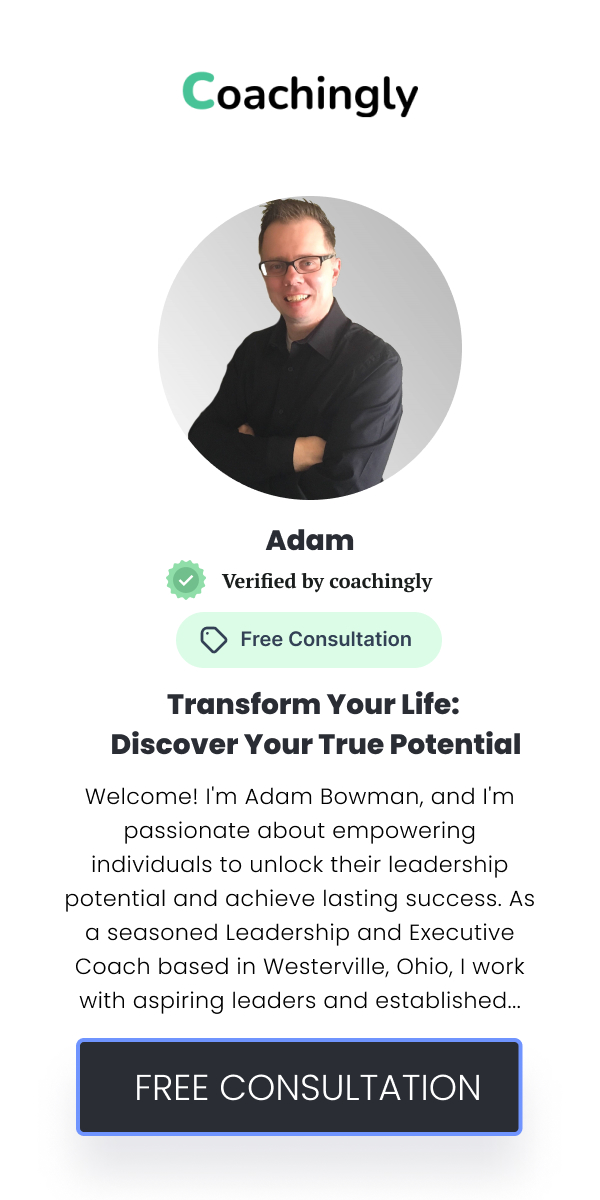
Unlocking Leadership Potential: Strategies for Aspiring Executives
![]() Dr. Adam Bowman
Dr. Adam Bowman
![]() August 11, 2024
August 11, 2024
Understanding leadership potential involves recognising its pivotal role in shaping career trajectories and organisational success. Effective leadership is not just about achieving results but also about inspiring and guiding others to reach their fullest potential. Key traits that distinguish successful leaders include a visionary outlook, the ability to think strategically, and emotional intelligence. These qualities enable leaders to navigate complex challenges, foster innovation, and build cohesive teams. Visionary leaders set clear goals and articulate a compelling future for their teams, motivating them to strive towards a shared vision. Emotional intelligence, encompassing self-awareness, empathy, and emotional regulation, allows leaders to connect with their team members and address their needs effectively. Communication skills, combined with influence, are essential for articulating ideas clearly and fostering a collaborative environment. Self-assessment tools and techniques are crucial for recognising and harnessing your leadership strengths. Tools such as personality assessments, 360-degree feedback, and leadership inventories can provide valuable insights into your strengths and areas for development. Self-awareness is a cornerstone of effective leadership, as it enables you to understand your capabilities and limitations. Identifying your strengths involves reflecting on past experiences and recognising recurring patterns of success. Leveraging these strengths involves strategically applying them in various contexts to maximise their impact. Techniques for enhancing personal strengths include setting specific goals, seeking feedback, and engaging in continuous self-improvement. By focusing on your natural leadership abilities, you can build a solid foundation for further growth and development. Cultivating emotional intelligence is a fundamental aspect of leadership development. Emotional intelligence involves recognising and managing your emotions as well as understanding and influencing the emotions of others. Techniques for improving emotional intelligence include mindfulness practices, active listening, and empathy exercises. Effective communication skills are equally vital, as they facilitate clear and impactful interactions with team members and stakeholders. Strategies for enhancing communication skills include practising active listening, refining your verbal and non-verbal communication, and seeking constructive feedback. Building strategic thinking abilities involves developing a long-term perspective and making informed decisions based on data and analysis. Methods for enhancing strategic thinking include engaging in scenario planning, studying market trends, and seeking mentorship from experienced leaders. Setting clear and achievable leadership goals is essential for personal growth and career advancement. Define your goals in specific, measurable, attainable, relevant, and time-bound (SMART) terms to ensure clarity and focus. Aligning personal and professional objectives involves integrating your career aspirations with your values and life goals. Creating an actionable leadership development plan involves outlining the steps necessary to achieve your goals, including identifying key milestones and resources. Regularly review and adjust your plan to reflect changing circumstances and new insights. Incorporate feedback from mentors, peers, and coaches to refine your strategy and enhance your progress. An effective development plan provides a structured approach to achieving your leadership aspirations and tracking your growth. An executive coach plays a pivotal role in supporting leadership development by providing personalised guidance and feedback. Working with an executive coach can help you gain clarity on your strengths, identify areas for improvement, and develop strategies to achieve your goals. The benefits of coaching include enhanced self-awareness, improved decision-making, and greater accountability. When selecting an executive coach, consider their experience, coaching style, and alignment with your goals and values. Effective coaches offer a combination of expertise, empathy, and practical strategies tailored to your unique needs. Questions to ask potential coaches include their approach to leadership development, their track record with similar clients, and their methods for measuring progress. Finding the right coach can significantly accelerate your growth and help you navigate the complexities of leadership. Addressing imposter syndrome is crucial for building confidence and overcoming self-doubt in leadership roles. Imposter syndrome involves feelings of inadequacy despite evidence of competence and success. Strategies for managing imposter syndrome include recognising and challenging negative self-talk, celebrating achievements, and seeking support from mentors or coaches. Managing stress and burnout is another common challenge for leaders, requiring effective stress management techniques and a focus on work-life balance. Practices such as time management, setting boundaries, and prioritising self-care can help prevent burnout and maintain resilience. Developing a growth mindset involves embracing challenges, learning from failures, and continuously seeking opportunities for improvement. By addressing these challenges proactively, you can enhance your leadership effectiveness and achieve your career goals. Commitment to lifelong learning is essential for sustaining leadership growth and adapting to evolving challenges. Continuous personal and professional development ensures that you stay current with industry trends and best practices. Recommended resources for leadership growth include books, seminars, workshops, and online courses. Networking and professional development are also critical for expanding your knowledge and building valuable connections. Engaging with industry peers, attending conferences, and participating in professional associations can enhance your learning and open new opportunities. By fostering a culture of learning and curiosity, you can stay ahead in your field and continue to evolve as a leader. Ongoing development not only supports your career progression but also contributes to long-term success and fulfilment.The Essence of Effective Leadership
Identifying Your Leadership Strengths
Developing Essential Leadership Skills
Creating a Personal Leadership Development Plan
Seeking Professional Guidance
Overcoming Common Leadership Challenges
The Impact of Continued Learning

Recent Articles
Maximising Your Leadership Effectiveness Through Personalised Coaching
The Power of Personalised Coac...
![]() Aug 20, 2024
Aug 20, 2024
Navigating Career Transitions: A Guide for New Leaders
Transitioning into a leadershi...
![]() Aug 19, 2024
Aug 19, 2024
Overcoming Common Leadership Challenges: Insights from Executive Coaching
Navigating the complexities of...
![]() Aug 18, 2024
Aug 18, 2024
How to Transition from Technical Expert to Influential Leader
Understanding the Shift from T...
![]() Aug 17, 2024
Aug 17, 2024
How to Develop Effective Decision-Making Skills in Leadership
In the realm of leadership, th...
![]() Aug 16, 2024
Aug 16, 2024
Creating a Balanced Leadership Approach: Integrating Work and Life
Understanding the Importance o...
![]() Aug 15, 2024
Aug 15, 2024
Personal Growth for Leaders: Finding Fulfillment Beyond the Boardroom
The Importance of Personal Gro...
![]() Aug 14, 2024
Aug 14, 2024
Strengths-Based Leadership: Leveraging Your Unique Talents for Success
Understanding Strengths-Based ...
![]() Aug 13, 2024
Aug 13, 2024
The Benefits of Tailored Coaching: Personalising Your Leadership Journey
Understanding Tailored Coachin...
![]() Aug 12, 2024
Aug 12, 2024
Developing Resilience: How Leaders Can Navigate Change Successfully
Understanding Resilience in Le...
![]() Aug 10, 2024
Aug 10, 2024
Leadership and Organisational Psychology: What You Need to Know
Understanding Leadership Throu...
![]() Aug 09, 2024
Aug 09, 2024
How to Build Confidence and Authenticity as a New Leader
Understanding the Role of Conf...
![]() Aug 08, 2024
Aug 08, 2024
The Importance of Emotional Regulation in Leadership
The Role of Emotional Regulati...
![]() Aug 07, 2024
Aug 07, 2024
The Impact of Leadership Coaching on Career Advancement
In today's competitive profess...
![]() Aug 06, 2024
Aug 06, 2024
The Power of Authentic Leadership: Leading with Purpose and Resilience
Understanding Authentic Leader...
![]() Aug 05, 2024
Aug 05, 2024
Long-Term Leadership Success: Building Sustainable Practices for Growth
Achieving long-term leadership...
![]() Aug 04, 2024
Aug 04, 2024
Developing a Leadership Presence: Tips for Making a Lasting Impact
Understanding Leadership Prese...
![]() Aug 03, 2024
Aug 03, 2024
Building a Strong Leadership Pipeline: Benefits of Team and Group Coaching
Understanding the Need for a L...
![]() Aug 02, 2024
Aug 02, 2024
Team Dynamics and Leadership: Fostering Collaboration and Communication
Understanding Team DynamicsTea...
![]() Aug 01, 2024
Aug 01, 2024
The Role of Emotional Intelligence in Effective Leadership
Understanding Emotional Intell...
![]() Jul 31, 2024
Jul 31, 2024
Enhancing Communication Skills for Effective Leadership
Understanding the Role of Comm...
![]() Jul 30, 2024
Jul 30, 2024
Personal Development for Leaders: Balancing Professional and Personal Growth
Understanding Personal Develop...
![]() Jul 29, 2024
Jul 29, 2024
The Impact of an Executive Coach on Leadership Success
Defining the Role of an Execut...
![]() Jul 28, 2024
Jul 28, 2024
The Role of an Executive Coach in Achieving Leadership Excellence
Understanding the Role of an E...
![]() Jul 27, 2024
Jul 27, 2024
